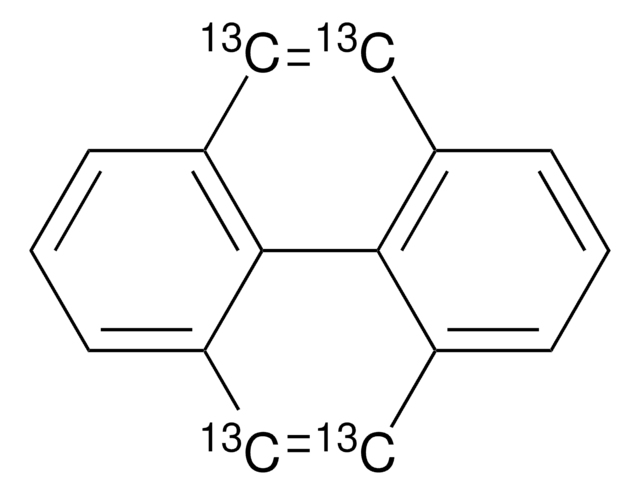900091
Iron oxide (II,III), nanoparticles
10 nm avg. part. size (TEM), streptavidin functionalized, 1 mg/mL in H2O
About This Item
Produits recommandés
Forme
dispersion
nanoparticles
Niveau de qualité
Concentration
1 mg/mL in H2O
Taille moy. des particules
10 nm (TEM)
Groupe fonctionnel
streptavidin
Température de stockage
2-8°C
Vous recherchez des produits similaires ? Visite Guide de comparaison des produits
Application
Autres remarques
Code de la classe de stockage
10 - Combustible liquids
Classe de danger pour l'eau (WGK)
WGK 2
Point d'éclair (°F)
Not applicable
Point d'éclair (°C)
Not applicable
Faites votre choix parmi les versions les plus récentes :
Déjà en possession de ce produit ?
Retrouvez la documentation relative aux produits que vous avez récemment achetés dans la Bibliothèque de documents.
Les clients ont également consulté
Articles
Professor Yu Cheng and co-workers look at the recent advances of nanoparticle-based imaging contrast agents for in vivo stem cell tracking. They provide an in-depth look at popular in vivo imaging techniques, magnetic resonance imaging, fluorescence imaging, ultrasound imaging, and photoacoustic imaging.
Professor Hui Mao explores the use of superparamagnetic iron oxide nanoparticles (INOPs) that offer an alternate contrast-enhancing mechanism.
Professor Yadong Yin (University of California Riverside, USA) examines both direct (thermal decomposition, solvothermal, hydrothermal) and indirect (templated) synthesis methods of magnetite nanocrystals and reviews in detail the landscape of these various synthetic methods for magnetite nanocrystal and their applications in magnetic assembly, magnetic hyperthermia, and Li-Ion batteries.
Notre équipe de scientifiques dispose d'une expérience dans tous les secteurs de la recherche, notamment en sciences de la vie, science des matériaux, synthèse chimique, chromatographie, analyse et dans de nombreux autres domaines..
Contacter notre Service technique






